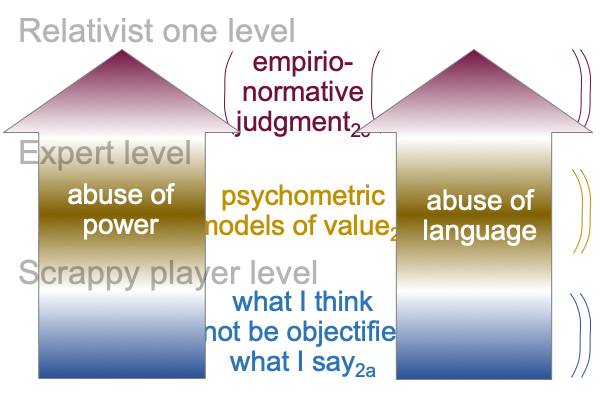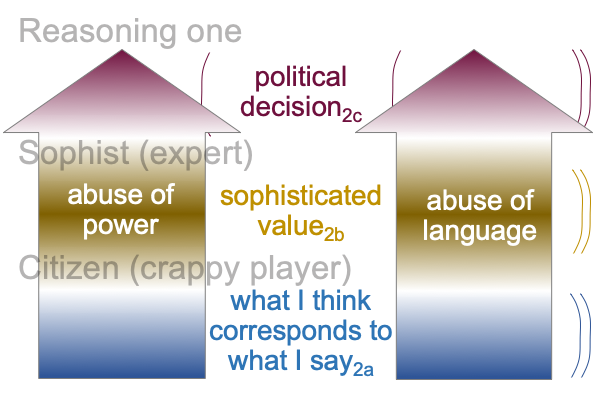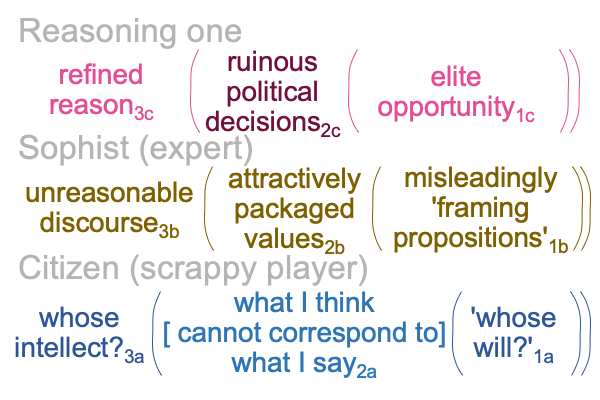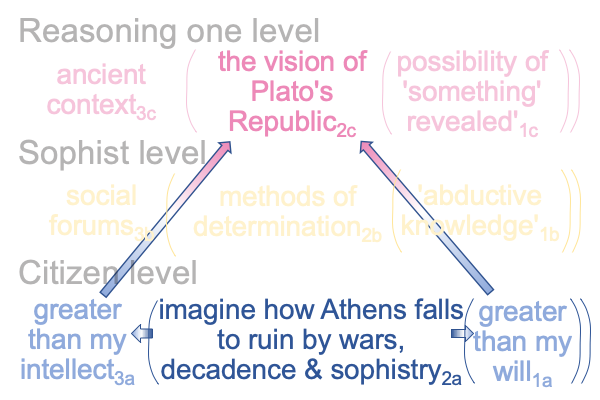Looking at Josef Pieper’s Book (1974) “Abuse of Language, Abuse of Power” (Part 1 of 8)
0756 The essay is originally published in German by Kosef-Verlag, Munich. In 1988, the essay is translated by Lothar Krauth, in an edition by Schuabenverlag AG, Osterfindern bei Stuttgart. The essay before me is published in 1992 by Ignatius Press, San Francisco.
Why should I examine this essay?
Is the post-truth condition a manifestation of original sin?
0757 If the answer is “yes” to the latter question, then the answer to the former is partially unveiled.
Obviously, there is no direct path from the post-truth condition to a reincarnation of the doctrine of original sin, but both can enter the cognitive space carved out by Pieper’s title. The stories of Adam and Eve portray an abuse of language similar to the type that we see today.
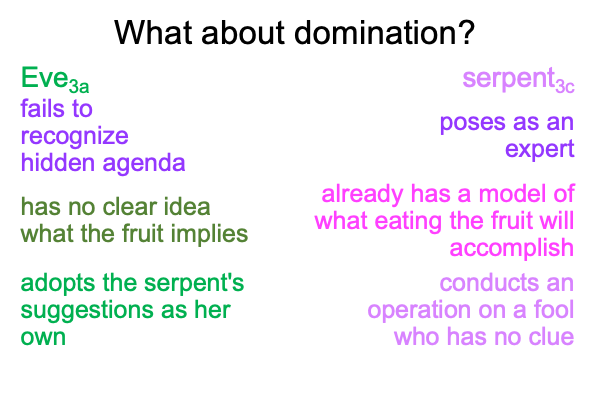
0758 The post-truth interscope is formulated in Looking at Steve Fuller’s Book (2020) “The Player’s Guide to the Post-Truth Condition” and applied in Looking at Vivek Ramaswamy’s Book (2021) “Woke, Inc.”.
The post-truth interscope has three levels.
Here is a picture.
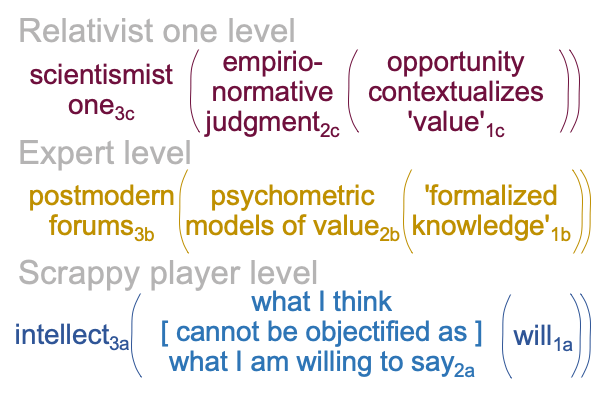
0759 The content level is labeled “scrappy player”. This is a level of under contention. How so? The actuality does not look like the scrappy player’s own self-impression. Typically, people feel that what I think [accords with] what I say,rather than a dyad that has the characteristics of what is of the Positivist’s judgment. So, the content-level actuality for the post-truth condition comes across as weirdly familiar, yet unnatural. The same goes with the normal context3a and potential1a of reason3a,1a. Reason3a,1a is the intellect3a contextualizing the will1a. Plus, the interscope is not clear as to who engages reason3a,1a. Is reason3a,1a the sign-interpretant (SIi) for the scientismist one3c‘s sign-vehicle (SVi)? Or is reason3a,1a a feature of the scrappy player’s cognition? Or both?
0760 The situation level is labeled “expert”. Psychometric scientistsb situate what the scrappy player is willing to say2aas phenomena that may be formalized as observations and measurements1b. Also, psychometric experts3b bring models of value2b into relation with the potential of ‘formalized knowledge’1b.
0761 The perspective level is labeled “relativist one”. This is a level that is difficult to grasp. The current relativist one3cis called, “the one of scientism3c“, because science has become the common style for expert3b expressions of value2b, where value2b is the intersection of capitalist and socialist nested forms. So, the scientismist one3c may be regarded as “the system” or “the style” (or even, “the hive”) for the current interscope of the post-truth condition.
Fuller notes that there is an absolute character to the relativist one3c. In order to truly operate as a relativist, one must be outside of all relativized jurisdictions. That observation indicates that the relativist one3c should occupy the perspective-level normal context of the post-truth interscope. Plus, that observation indicates that relativized jurisdictions should belong to the situation level. So, all sciences and experts3b are relative from the point of view of the scientismist one3c.
0762 So, let me make a prediction as to how Josef Pieper’s argument will play out.
